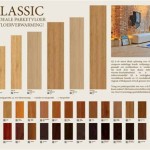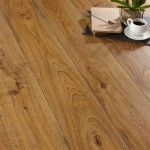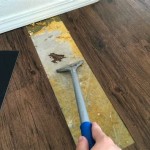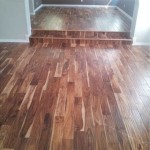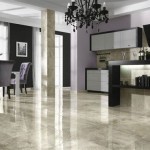Essential Aspects of DIY Cork Flooring
Cork flooring has become increasingly popular in recent years due to its unique combination of sustainability, durability, and underfoot comfort. Installing cork flooring as a DIY project is a viable option for skilled homeowners with some experience in flooring installation. Here are some essential aspects to consider when tackling a DIY cork flooring project.
### Types of Cork FlooringCork flooring comes in two main types: solid cork and cork tiles. Solid cork planks are made from a single piece of cork and are more durable than tiles, making them suitable for high-traffic areas. Cork tiles, on the other hand, are made from smaller pieces of cork that are glued or nailed down. They are less durable but offer a wider range of designs and colors.
### Preparation & AcclimationBefore installing cork flooring, it is crucial to prepare the subfloor. It should be dry, level, and smooth. Use plywood or cement backer board to level any uneven surfaces. Acclimate the cork flooring to the room's temperature and humidity for at least 48 hours before installation to prevent warping or buckling.
### Installation MethodsCork flooring can be installed using two methods: floating-floor or glue-down. Floating-floor installation involves interlocking the planks together and laying them over an underlayment. It is faster and easier than glue-down installation, which involves adhering the planks directly to the subfloor using adhesive. Floating-floor installation is better suited for interlocking cork planks, while glue-down installation is recommended for cork tiles.
### Finishing & MaintenanceOnce installed, cork flooring needs to be sealed to protect it from moisture and wear. Apply several coats of a water-based or solvent-based polyurethane sealant according to the manufacturer's instructions. Cork flooring is relatively low-maintenance, requiring only regular sweeping or vacuuming to remove dirt. Mop it with a damp microfiber mop and a mild cleaner as needed.
### Benefits & ConsiderationsCork flooring offers numerous benefits, including:
- Sustainability: Cork is a renewable resource harvested from cork oak trees without harming them.
- Durability: Cork flooring is resistant to scratches, dents, and moisture, making it suitable for high-traffic areas.
- Comfort: The cellular structure of cork provides excellent underfoot cushioning and noise absorption.
- Natural Insulation: Cork is a natural insulator, helping to regulate temperature and reduce noise.
- Hypoallergenic: Cork flooring is hypoallergenic and resistant to dust mites, making it a good choice for allergy sufferers.
However, there are also some considerations to keep in mind:
- Cost: Cork flooring can be more expensive than other flooring options, especially for solid cork planks.
- Scratches: Cork flooring can be scratched by pet claws or sharp objects if not properly sealed and maintained.
- Moisture Resistance: While cork flooring is moisture-resistant, it is not waterproof and can be damaged by excessive moisture.

Cork Flooring Pros And Cons Is It The Right Choice For You

Recycled Cork Flooring Reset Studios

Diy Cork Floor For Campervan Extra Insulation Eco Friendly Natural Affordable

Transform A Bedroom From Carpet To Cork Flooring Sabrinas Organizing

Diy Cork Flooring Pros Cons Green Installation Guide For Leed Passive House Ecohome

Diy Cork Floor For Campervan Extra Insulation Eco Friendly Natural Affordable

Wine Cork Flooring How Cool Crafts Decor Unique

How To Install Cork Tile Flooring Diy Family Handyman

Laying Timber Flooring Over Cork Tiles Bunnings Work Community

Pin By Paula Dutton On For The Home Diy Cork Flooring Kitchen
Related Posts

